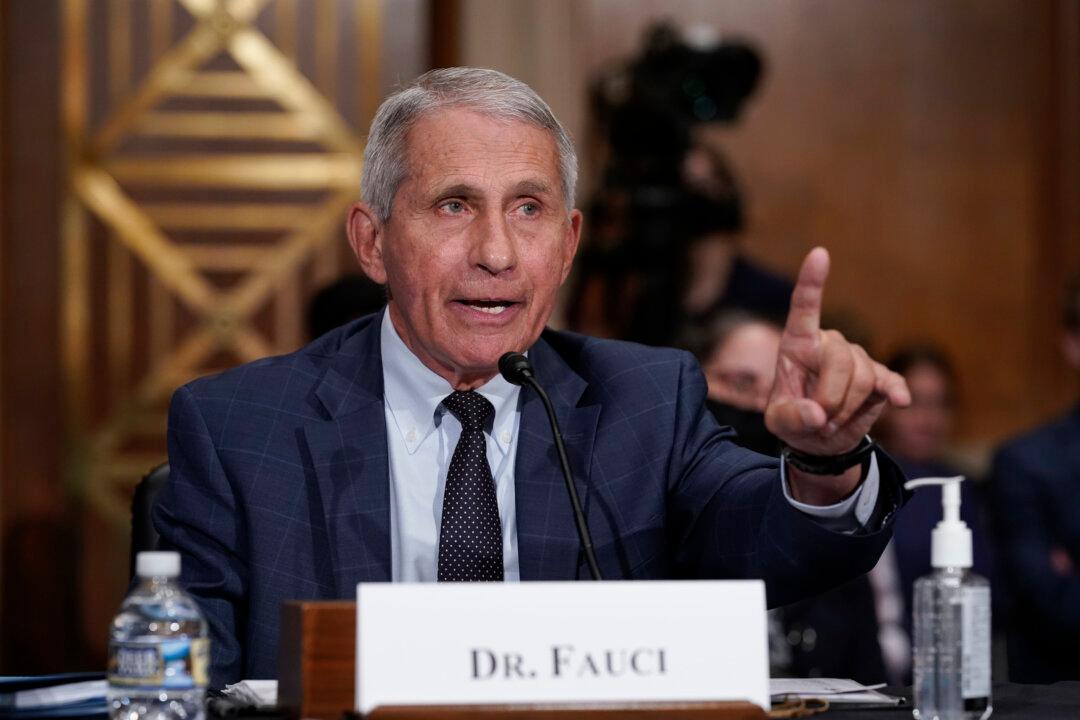Dr. Anthony Fauci drew a salary of $434,312 in 2020, making him the federal government’s highest-paid employee for the second year in a row, and the top earner among dozens of medical officers receiving high salaries throughout the executive branch.
Fauci, director of the National Institutes of Health’s (NIH) National Institute of Allergy and Infectious Diseases (NIAID) and current chief medical adviser to the president, was paid $417,608 in 2019.





